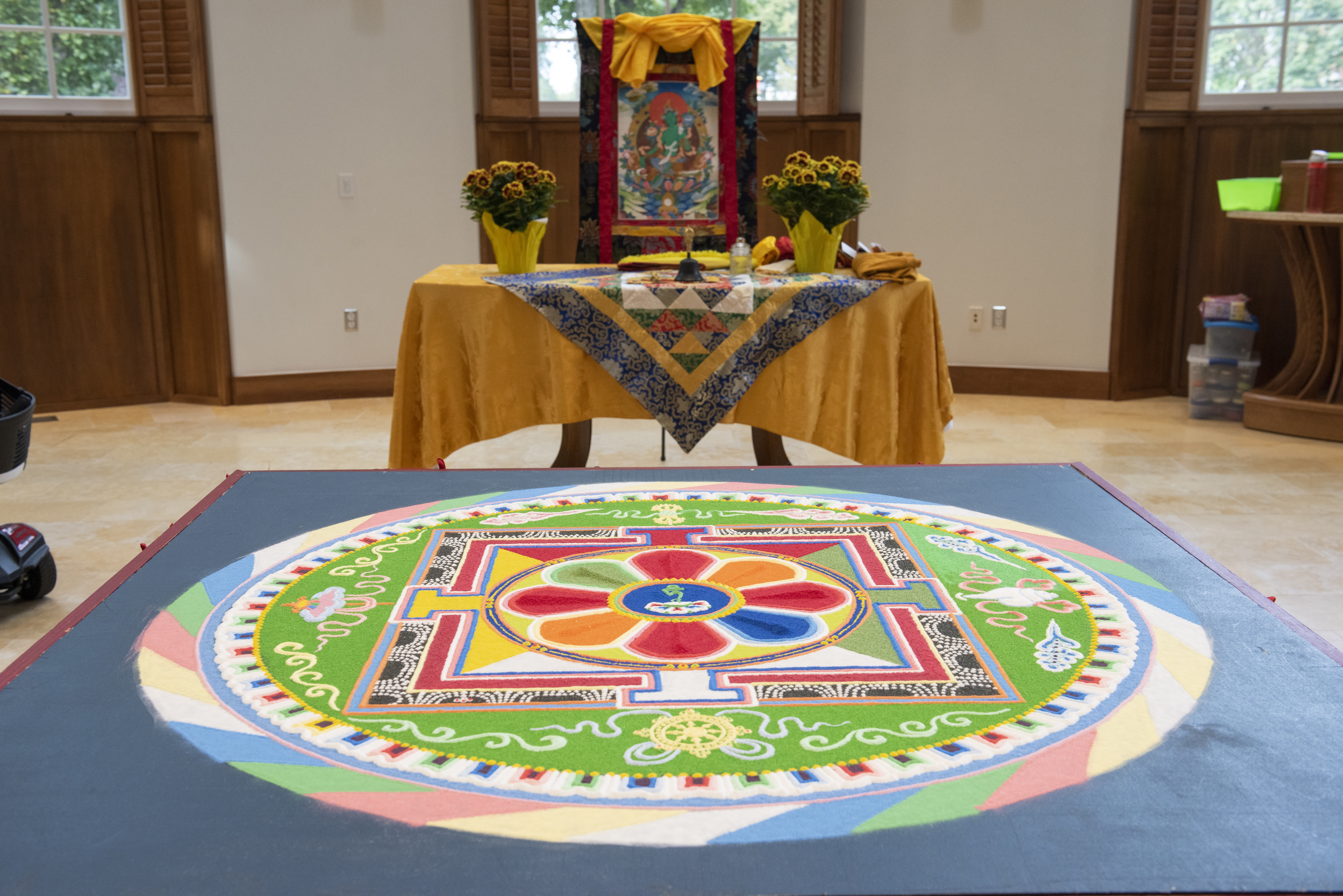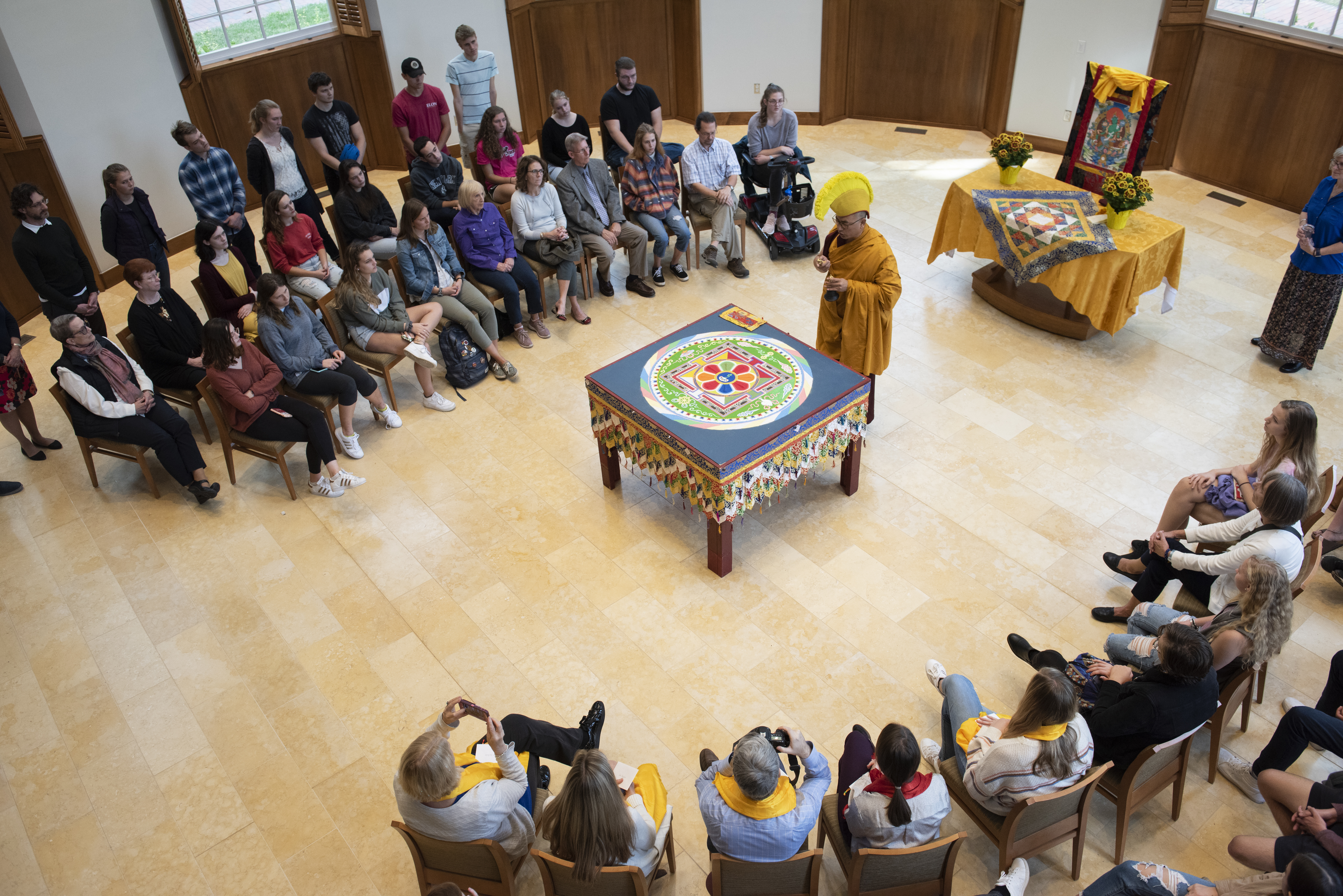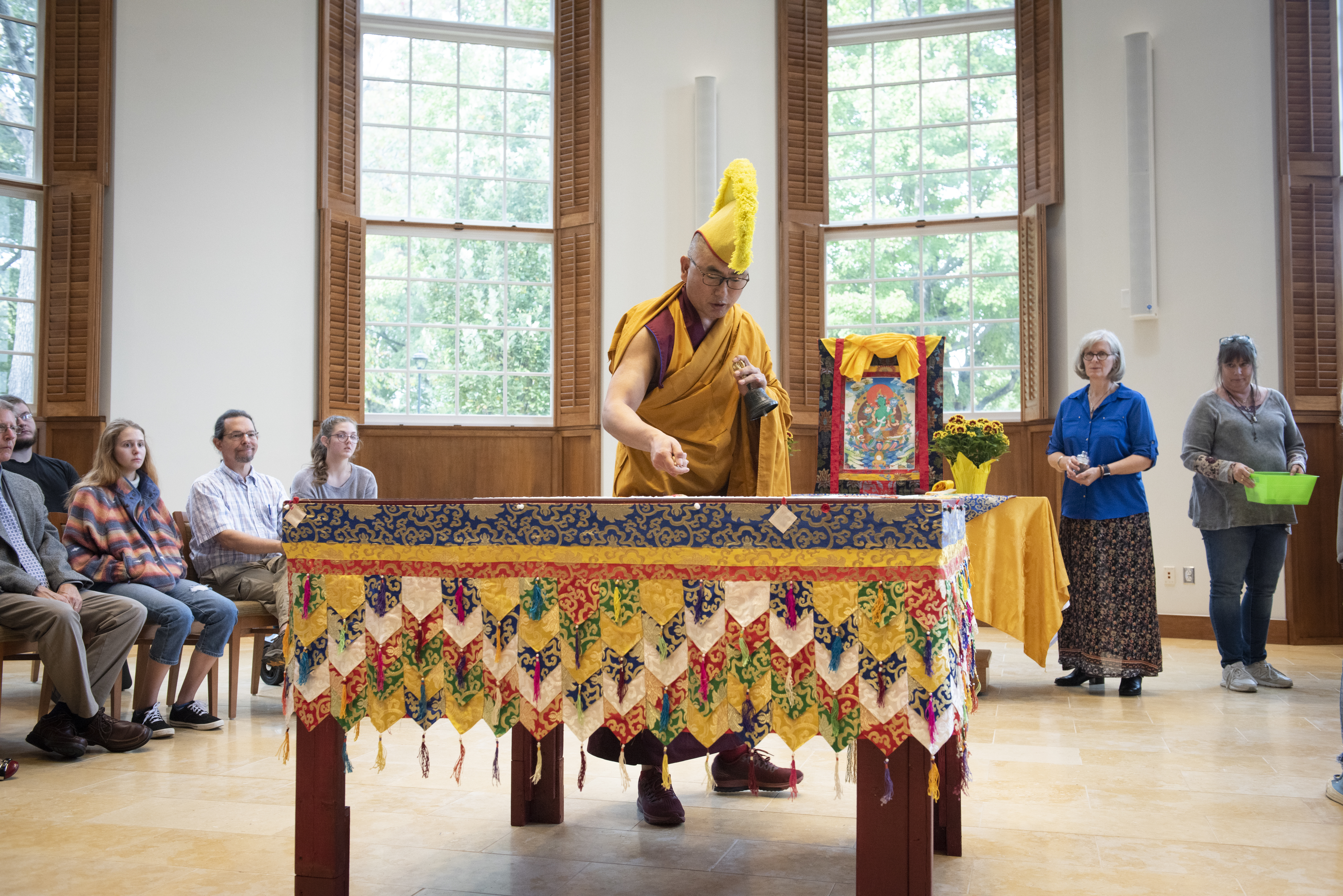Buddhist monk Geshe Sangpo of the Kadampa Center in Raleigh will visit Elon from Wednesday, Sept. 14 to Friday, Sept. 16 to construct a Green Tara Sand Mandala, a delicate artwork symbolizing healing and peace.
Healing, peace and harmony are to be spread far and wide during the Green Tara Sand Mandala ceremony starting on Wednesday, Sept. 14 at 10 a.m. in the Numen Lumen Pavilion with the help of Tibetan Buddhist monk Geshe Sangpo.
The closing ceremony for the sand mandala is Friday, Sept. 16 at 3 p.m. Visitors are encouraged to stop by the Sacred Space at any time to view the sand mandala construction. Those who attend the closing ceremony will have the opportunity to leave with some of the blessed sand used to construct the mandala.
“It serves as a place of assistance for one to achieve self-realization and recognize their potential for Buddhahood through visualization and meditation. In Buddhism, this is known as nirvana, which is the absence of desire,” said Pamela Winfield, professor of religious studies, about the sand mandala process. “It is a continual practice of selflessness, rather than selfishness.”
The Green Tara Sand Mandala receives its name from the Buddhist figure of Tara, a feminine manifestation of enlightened activity and compassion. She resides in the center of the mandala, which is a two-dimensional blueprint for what should be thought of as a three-dimensional palace.

The tradition of scraping colored sand to create a mandala palace diagram derives from Tibetan Buddhism. Through this practice, Buddhas and bodhisattvas are ritually invited to bless the space and then are sent off once the diagram is complete. At the end of its construction, the mandala is swept up which symbolizes the deconstruction of the ego. The empowered sand is therefore designed to be viewed, spread and shared to promote peace and harmony.
The Green Tara Sand Mandala is a space where this compassion can be shared with all. More students that attend the session will create more regenerative energy that will have a positive ripple effect in the Elon community and beyond. Attendees experience a great sense of awe and wonder when exploring the Buddhist religion through this special event.
Elon University’s Truitt Center for Religious and Spiritual Life has hosted this event since 2013 and holds a close relationship with the Kadampa Center in Raleigh, North Carolina, where Geshe Sangpo is based.

“This grants us the unique privilege of greater religious and spiritual exploration,” said Hillary Zaken, interim assistant dean of Multifaith Engagement. “Elon University is a multifaith campus, which means that we welcome students of all and no religious traditions in our spaces, and host festivals, programs and observances from many different religious and spiritual traditions.”
Sangpo was born in 1972 in Kham Karze, eastern Tibet. At 12 years old, he left his hometown to cross the Himalayas and his religious credentials include full ordination vows, as well as the recognition of being one of the youngest people to earn a Geshe degree which takes decades to acquire.
Elon University is one of a few institutions Sangpo will visit to display such a sacred, delicate and intricate piece of art.
Whether you are an atheist, agnostic, religiously associated or spiritual but not religious, your background and perspective are welcomed and encouraged to join this community. This specific event is just one of many that the Truitt Center will hold this semester.



